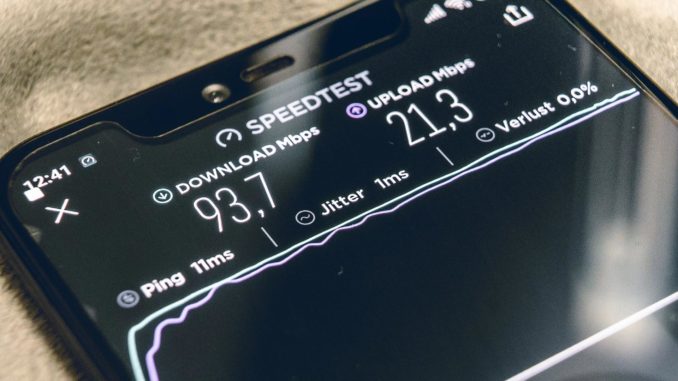
In today’s increasingly digital world, a fast and reliable Internet connection has become a necessity. A strong Internet connection is vital, whether working from home, streaming your favorite TV shows, or connecting with friends and family on social media. However, it’s essential to recognize that having great Internet doesn’t necessarily guarantee great Wi-Fi. In this blog post, we’ll explore why great Internet doesn’t equal great Wi-Fi and how you can ensure a seamless online experience in your home or office.
Understanding the Difference
Before we explore the reasons behind the disparity between great Internet and Wi-Fi, it’s crucial to understand the difference between the two. Internet refers to the connection your Internet Service Provider (ISP) provides that enters your premises. On the other hand, Wi-Fi is the wireless technology that distributes that Internet connection throughout your home or office, allowing multiple devices to access it wirelessly. Today’s average home has 22 wireless devices, while business Wi-Fi needs to support three devices per employee plus their “house” devices like wireless printers.
Reasons for the Discrepancy
Router Quality: Your Wi-Fi experience depends heavily on the quality of your wireless router. Many ISPs provide basic routers that might not offer the best Wi-Fi performance.
Distance and Obstacles: Wi-Fi signals weaken as you move further away from the router or encounter physical obstacles like walls, floors, and electronic devices. These factors can result in dead zones where Wi-Fi signals are weak or nonexistent.
Interference: Wi-Fi operates on specific radio frequencies, and other electronic devices in your home, such as cordless phones and microwaves, can interfere with your Wi-Fi signal. This interference can degrade your Wi-Fi performance.
Network Congestion: A crowded Wi-Fi network with multiple connected devices can lead to slow speeds even if you have a fast Internet connection. Congestion can be especially true in densely populated areas like apartment buildings.
Outdated Hardware: Over time, Wi-Fi technology evolves, and older routers or devices like laptops or tablets may not be capable of delivering the fastest speeds available with your Internet plan. Upgrading your equipment can make a noticeable difference.

Improving Your Wi-Fi Experience
Now that we understand why great Internet doesn’t automatically mean great Wi-Fi let’s explore some steps you can take to enhance your Wi-Fi performance:
Upgrade Your Router: If you are a BYOD (Bring Your Own Device) user, invest in a high-quality router that can significantly improve your Wi-Fi experience; look for at least a Wi-Fi 6 router. Atlas maintains a list of suggested routers in our Knowledge Base. Some ISPs offer multiple router options for lease. Check with your provider to see if they have newer or more capable options available for lease.
Optimize Placement: Position your router in a central location within your home or office to reduce signal interference and maximize coverage.
Use Wi-Fi Extenders:
- If you have dead or weak zones, consider using Wi-Fi extenders or mesh systems to expand coverage throughout your space.
- Be careful here; however, not all extenders and mesh systems are alike.
- Stick with higher-end brands, don’t mix brands, and don’t mix Wi-Fi 5 and Wi-Fi 6 systems.
Update Firmware: Regularly update your router’s firmware to ensure it has the latest security patches and performance improvements. Most decent routers today support upgrading from the user interface.
Reduce Interference: Keep electronic devices that may interfere with Wi-Fi signals away from your router, and choose Wi-Fi channels with less congestion. Also, avoid putting your router next to large metal objects.
In conclusion, having great Internet is just one piece of the puzzle. To enjoy a great Wi-Fi experience, you need to consider factors like router quality, placement, and potential sources of interference. By addressing these issues and optimizing your Wi-Fi network, you can ensure that your online activities run smoothly and that your digital experience matches the quality of your Internet connection. A wired connection to your router is always the best bet if you’re a hard-core gamer.
Wi-Fi Specific to Atlas Customers
If you prefer to lease a router, Atlas offers three tiers of Wi-Fi for apartments/condos, homes in the Suncadia community, and businesses.
- Tier 1 – For non-demanding apartments/condos and very small business users, we offer a basic Wi-Fi router for low cost, which includes support and is capable of streaming to multiple devices. Still, there are better options for intensive users or gaming.
- Tier 2 – Our standard router is Wi-Fi 6, fully managed and supported, and is an excellent option for multiple simultaneous streams, deals with Wi-Fi congestion better, and is suitable for gaming and small business applications. This option also supports mesh networking, so multiple access points are distributed around your apartment/condo or small business.
- Tier 3 – is an engineered Wi-Fi 6 solution with multiple/many hard-wired access points distributed throughout your business or home.
- This solution is fully managed and supported, including on-site support, Wi-Fi tuning, frequency analysis, etc. We can deploy this solution into larger homes, small businesses, enterprises, or event facilities.
- Atlas will conduct a physical site survey and then build a heatmap of your home or business to custom-design solutions tailored to you.
To sign up for residential or commercial Internet services, visit atlasnet.com.